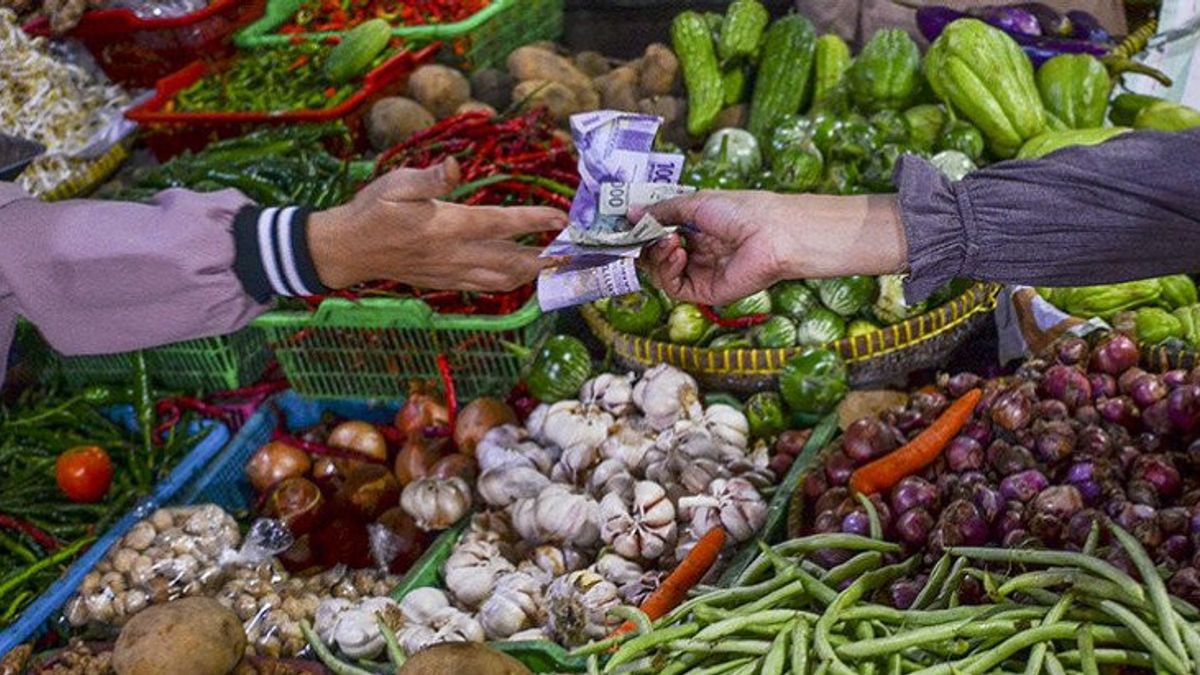JAKARTA - The Institute for Development of Economics and Finance (Indef) has asked the government to cancel the planned value added tax (VAT) collection for basic food items. The reason is that the potential for tax revenue contributed from these commodities is very small.
Indef researcher Rusli Abdulah explained, based on his calculations, the tax received by the government from basic food items is estimated to only reach Rp. 21 trillion. This amount was donated from rice, tubers, fish, meat, eggs and milk commodities, vegetables, nuts and fruits.
"The potential is only IDR 21 trillion, it also doesn't come out of nowhere but there are many challenges that the government must face. The narrative of increasing staple food items is not appropriate in the midst of the COVID-19 pandemic," he said in a virtual discussion, Tuesday, September 14.
The estimated number, said Rusli, came from the calculation of the average per capita expenditure of the community to buy food needs of Rp. 204 thousand per month in 2020. Then multiplied by 12 months or for one year. The result is IDR 3.2 million per capita expenditure for eight commodities.
According to Rusli, from that number, it is then multiplied by the total number of families in Indonesia. Data from the Central Statistics Agency (BPS) states that there are around 65.5 million families in the country in 2019. The result is around Rp. 211 trillion, then multiplied by 10 percent as a rounding figure (tax levy), so the potential food tax income is Rp. 21 trillion per year.
"This figure if you want to increase or add to the contribution of the tax ratio is very small," he explained.
Rusli said that rather than the government collecting taxes from basic commodities, it is better to look for new tax sources that are not yet optimal. These include mineral taxes, or corporate income tax. He said that it was planned that the corporate income tax would be lowered and the super-rich were suspected of enjoying it.
"Is it (the food tax) kicks in when compared to transfer pricing, mineral taxes or tax optimization that has not been maximized. Especially for corporate income tax, the unfortunate thing is that it will be lowered," he said.
The English, Chinese, Japanese, Arabic, and French versions are automatically generated by the AI. So there may still be inaccuracies in translating, please always see Indonesian as our main language. (system supported by DigitalSiber.id)













